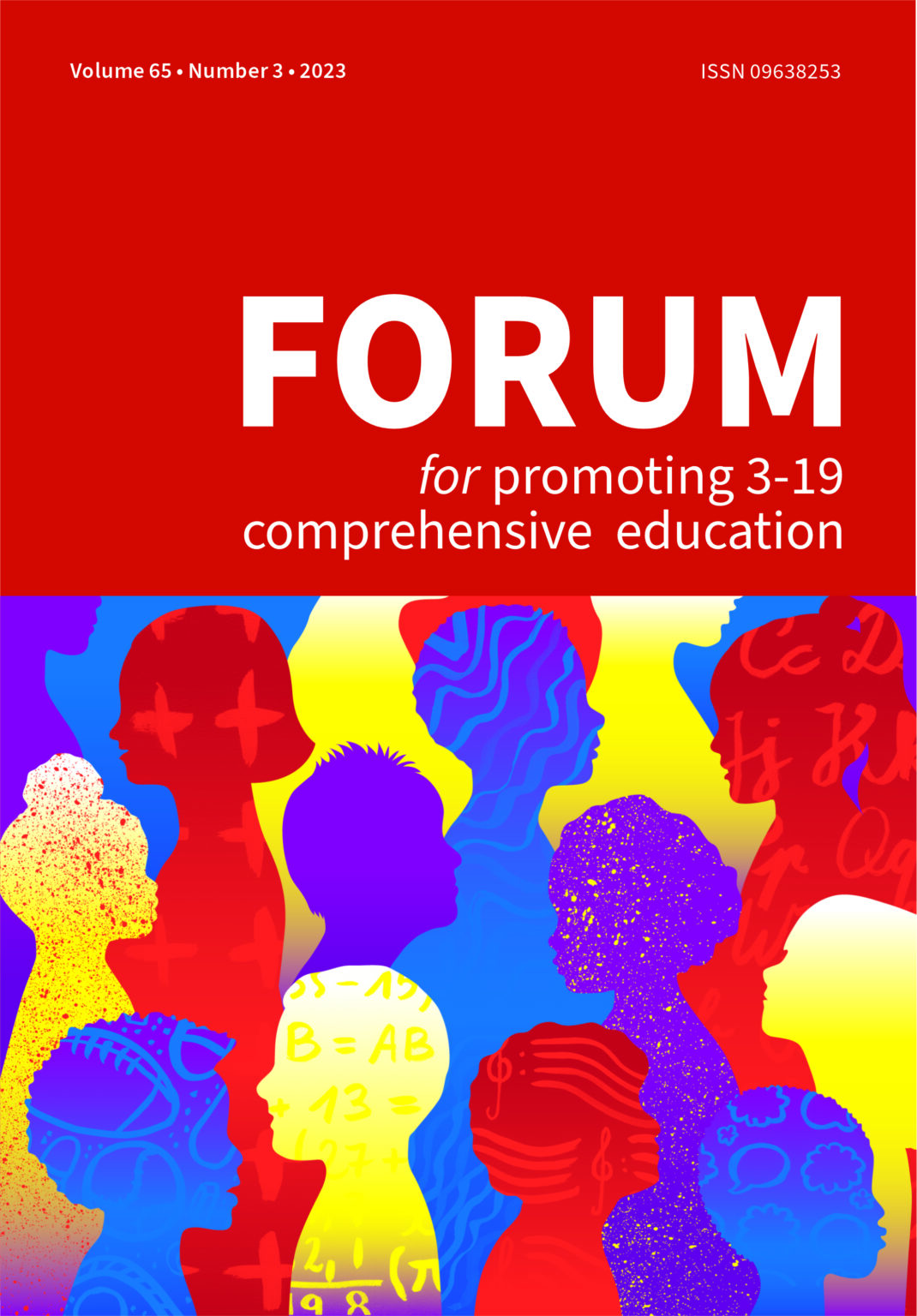Foreign and contrary
Posted on 15/11/2023
The Autumn 2023 number, ‘Educational Inspection: coercive or responsive?’, is a Special Issue. Patrick Yarker, who co-edited the number with Professor Colin Richards, introduces it.
How best balance the inevitably judgemental (and so potentially coercive) character of public educational inspection and evaluation with the benefits of more responsive, supportive and nurturing approaches? In his article for the Autumn number David Singleton suggests that a school inspection should best be framed as ‘a serious, disciplined conversation based on shared understandings and common values’.
This Special Issue hopes to contribute to the work of framing or re-confirming values and understandings that might be held in common by all engaged in constructive educational inspection. But formal compulsory education in England is a terrain everywhere riven by divided views and antagonistic understandings, not least about what makes for good teaching and what characterises a good school. Particular voices hold sway not because they best articulate a broadly-arrived-at, agreed and consensual paradigm but because they are empowered by policy or by their privileged status within an overly-centralised administrative framework.
A conversational model of educational inspection might be thought intrinsically more favourable to the collaborative potential inherent in the process: responsive rather than judgemental or coercive. Yet responsive collaboration is not without necessary tensions and judgements. It has been said that the task of true conversation is precisely to find a common language through which those conversing may encounter something not previously met with in their experience of the world. For this to happen there must be, as the German philosopher Hans-Georg Gadamer puts it, ‘a willingness to make room for what is foreign and contrary’. A willingness on the part of everyone conversing.
Prior to the establishment of Ofsted the inspection system looks to have been more suited to the conversational paradigm, at least as sketched by Colin Richards in an article he calls ‘a re-interpretation and updating’ of the approach taken by HM Inspectorate before its abolition in 1992. The wider scope available in that era for the exercise of professional judgement by all parties—inspectors, headteachers and teachers—may have something to do with this, together with a public discourse seemingly readier to acknowledge the uncertainty that must attend such judgement. Where it is authentic, the conversation within which inspection judgements are made is continuous. Every judgement is available for review because understood to be at root provisional. Which is not to say pointless.
This way of regarding and practising the necessary and vital work of educational inspection has been ousted by approaches which claim to be more objective and so supposedly more true. These approaches turn out to be overly rigid, blinkered, and adversarial. They tend to alienate the very people in the best position to improve the quality of education for the young. They bracket off consideration of the multifaceted social context of which any school is a part. They result in one or two-word labels made public to frank the supposed quality of institutions engaged in perhaps the most complex social process humankind consciously undertakes: educating the next generation. And by excluding the possibility for those inspected to respond on equal terms, these approaches exclude the possibility of serious and disciplined conversation.
An increasingly wide range of voices are speaking up against continuing with the current inspection system. To question the nature and purpose of educational inspection is inevitably to question, sooner or later, the purpose and nature of the formal institutionalised education which is being inspected. It’s no good reforming the inspectorate without also reforming the curriculum and assessment framework within which schools must operate. Such reform requires that not only ex-Chief Inspectors and former Education Secretaries and academy CEOs be listened to, but also teachers and young people across the country. Centrally-directed top-down policy-making leeches the sense of vocation and commitment out of those who serve the community by their work in its schools. If there is to be a conversation, all who wish to do so must be enabled to take part.
Forum’s Autumn number illuminates, examines and reflects on the tensions that exist between the need for educational inspection to be a mechanism for public accountability, and for it also to be thoughtfully and carefully responsive to what it finds in the system. The number looks at approaches to inspection abroad as well as in England and Wales. It draws on contributions from many former inspectors both in HM Inspectorate and in Ofsted, and includes writing in defence of Ofsted as well as critique. It presents something of the classroom teacher’s view of a process too often ‘done to’ those inspected rather than done with them. It considers the situation facing those who work in Early Years as well as in Primary and Secondary schools. It reaffirms that the duty of care is fundamentally important. This is a duty which Ofsted has neglected for a long time.
Evidence to the Covid inquiry has revealed the shortcomings of those who equate professionalism with a deliberate and sustained willingness to disregard the views and disdain the feelings of fellow public servants. Only those who will make room for what is foreign and contrary are to be looked to if the conversation about reforming educational inspection shall bear fruit. Does the new Chief Inspector have all the answers, or might he be open to a genuine conversation? A conversation is genuine, Gadamer reminds us, insofar as it is never the one we wanted to conduct.

